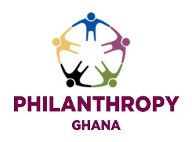
The fourth Ghana Giving Summit has been held in Accra where over 85 members of the Philanthropy Ghana coalition, partners and stakeholders have underscored the absence of a dedicated policy framework on philanthropy in Ghana.
This void, they argued, is becoming a stumbling block, hindering the nation’s progress towards achieving the ambitious Sustainable Development Goals (SDGs) by 2030.
The summit organized by Philanthropy Ghana, CESPSI and Giving Tuesday, themed “Activating RadicalLocal Philanthropy in Ghana towards the fulfillment of the Sustainable Development Goals (SDGs),” brought together more than 50 CSOs and NGOs, shedding light on the pressing need for a strategic approach to philanthropy to address the developmental challenges faced by local communities.
The urgency of the matter was palpable, especially as dwindling funding for SDGs poses a threat to the sustainability of ongoing projects.
During the summit, participants were divided into groups corresponding to the five pillars of the SDGs to engage in discussions around the challenges of; people, planet, partnerships, prosperity and peace.
The discussions were not just about identifying challenges but, more importantly, about finding solutions that could empower these organizations to play a more effective role in achieving sustainable development.
They also proposed and presented solutions which they committed to achieving in their various organizations.
On the sidelines of the summit, Prince Nii Afotey, spokesperson for the Worldwide Grants Initiative (WINGS), emphasized the critical impact of the lack of a policy framework on philanthropy in Ghana. He highlighted how this gap is stifling the contributions of CSOs and NGOs, emphasizing the urgent need for a structured approach to maximize their impact.
As the shadow of diminishing donor support looms large, Levelyn Asiedu, the National Coordinator for CSOs on the SDGs in Ghana, passionately urged her counterparts to revitalize their efforts.
In her call to action, she stressed the importance of enhancing impact reporting metrics to attract the necessary support, emphasizing that a collective effort is imperative to bridge the funding gap. Emmanuel Marfo, the acting director for the Center for Strategic Philanthropy and Social Investment (CEPSI) at Pentecost University, added another layer to the discussion.
He advocated for improved data availability, stressing that robust data is not only essential for driving policy formulation but also for attracting crucial donor support. In the wake of these impassioned pleas and calls for action, the stage is set for Ghana to pave the way forward in philanthropy.
The fourth Ghana Giving Summit has not only brought attention to a critical issue but has ignited a collective resolve to address the challenges head-on and unlock the potential of philanthropy for sustainable development in the nation.
